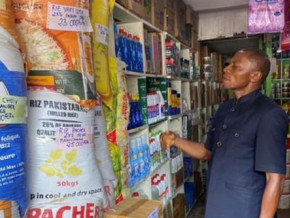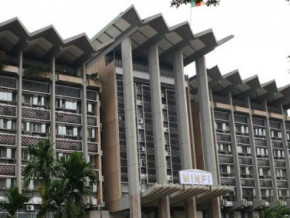
Cameroonian govt to place public companies under performance contracts by the end of 2024, under IMF pressure

(Business in Cameroon) - Cameroon’s Minister of Finance, Louis Paul Motazé (pictured), signed last July 6 a document governing performance contracts between the State and public companies. He also provides a timetable according to which from January 1, 2023, to December 31, 2024, all companies and institutions in the State portfolio will be placed under performance contracts.
With this approach, the government is fulfilling a commitment in the framework of the 2021-2024 economic and financial program with the IMF. According to the institution, the contracts will specify “public service obligations, unit costs (as a basis for payment of subsidies), and required measurable indicators of production volume and service quality." IMF says that in addition to producing "poor results", public companies in Cameroon are money pits, insofar as they regularly receive large subsidies and cash from the state, without any obligation to perform.
Minister Motazé also made the same remarks in his note. "As part of the continued implementation of the public companies reform led by the government since 2017, we have observed the poor performance of public establishments and companies in the achievement of their statutory missions and the generation of profits; the significant weight of these entities on public finances, through operations of cash injections, subsidies or recapitalization by the State; the budgetary risks for the State, whose responsibility could be called due to the overall liabilities and the significant outstanding financial commitments of these entities," the official wrote in his note.
Low financial profitability
To tackle this issue, the government intends to create a new dynamic through performance contracts. The strict implementation and rigorous evaluation of this measure should enable the beneficiaries "to achieve an acceptable performance level and occupy a central place in the national development program, which is supported by public policies and implemented by the government."
According to both the government and the IMF, these performance contracts are the best way to make state-owned companies profitable, and no longer a burden on public finance. As a reminder, in a document annexed to the 2021 finance law, the Cameroonian government analyzes the economic profitability of 38 public companies out of the 44 that make up its portfolio (public establishments are not included). "The FY2019 has seen a deterioration in the financial profitability of public enterprises. The financial profitability rate stands at -14.5%, 6.5 points lower than in 2018. Since the FY2017, this profitability has been plagued by the structural deficit situation of these companies," we learn.
Huge debt and unbearable costs
The Finance Minister cited five main reasons to explain the low profitability of the public companies. These include the absence of technological innovation; the presence in the production tool of non-productive and not-needed fixed assets; the absence of economies of scale and a large cost structure (mainly a heavy wage bill); a high need for working capital due to the imbalance of their financial structure; an ineffective and weak marketing strategy.
Among these factors, the explosion of operating expenses, and mainly the wage bill, is of particular concern to the Technical Commission for the Rehabilitation of Public and Para public Enterprises (CTR). In a 2020 report, the technical commission revealed that at the end of 2019, personnel costs alone in 90% of public companies were greater than 30% of their annual turnover. In some cases these costs are "above 70%" of turnover, leaving no room for optimal operation.
As a result, the CTR points out, in addition to showing a drop in their investments of 67.4% between 2018 and 2019, the entities in the State portfolio are heavily indebted. According to the scores of the Autonomous Amortization Fund (CAA), the organization in charge of managing the public debt, at the end of March 2022, the direct debt recorded by the country's public enterprises and establishments is estimated at CFA862 billion, or 3.4% of GDP. It is made up of 53.4% external debt and 46.6% domestic debt.
Brice R. Mbodiam
Mags frontpage
- Most read 7 days
- shared 1 month
- read 1 month






























